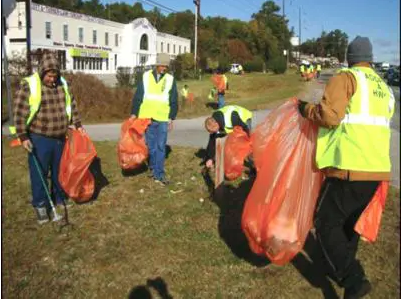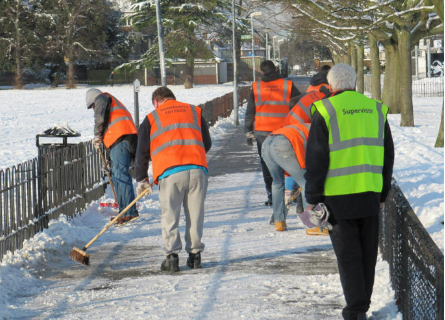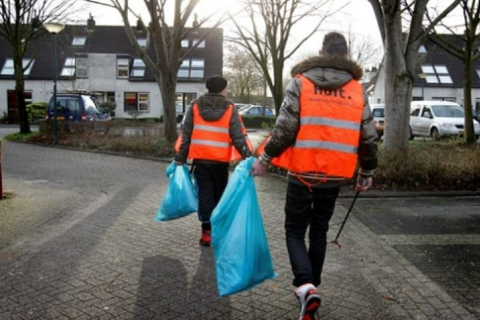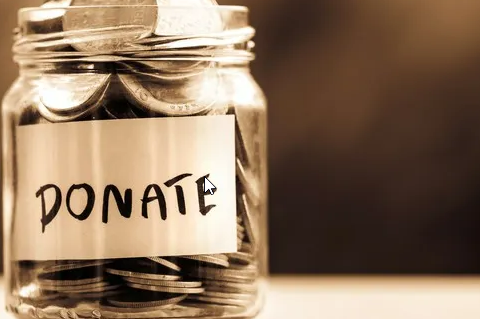In the case of placing an offender who gets the opportunities for Community Service, the community probation staff is actually responsible to find a proper workplace. To conduct the projects, an offender will be sponsored by an eligible agency. After entering the workplace, an offender should follow any regulations.
When completing this alternative sentence, an offender needs to work hard and make sure to arrive on time. If you are an offender who conducts Community Service, you may wonder who the courts assess your performance and verify your service hours. To know the information about it, let’s see our post below!
Read also: How to Get Court Ordered Community Service Hours Fast
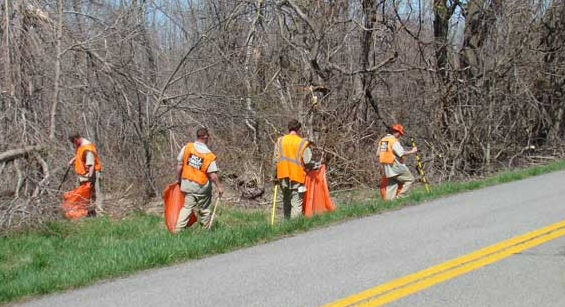
How Do Courts Verify Your Community Service Hours?
The courts almost always verify your community service hours by receiving the report from the agencies where you conduct for community service. The agencies that are assigned to maintain the accurate record of the community will report the information to the courts. So, the courts will easily verify your community service hours every day.
Generally, the agency or organization that is coordinating or supervising your community service hours will need to sign a form or timesheet verifying your hours. After assigning to a probation officer, the courts will verify that you had complied with the community service condition of your probation order. If you don’t comply, the probation officer will violate your probation.
Moreover, a lot of courts will have a system of people which accept community service volunteers, so that the court will be able to give a defendant a list of those in the area or country. Either they sign off a sheet that the defendant or the organizations reports to the court directly can submit to the court.
How Does the Community Service Work?
Community Service is also known as community restitution. This is a form of alternative punishment that is intended to benefit the community which has been harmed by an offender’s crime.
The judge will often order offenders to do Community Service, instead of other forms of punishment, where it doesn’t send you to the prison, pay for fines or also probation. In this case, the judge will have broad discretion to determine whether and what kind of community service to conduct for an offender.
Well, all different kinds of community service options will be available, as long as the sentence reasonably protects the public’s interests and is not unduly harsh. In a lot of instances, the judges will determine that the community benefits from substance-abusing offenders to enter a rehab program.
So far, the community will benefit since the judge believes that the offender is unable to continue to commit crimes with appropriate substance-abuse treatment. However, the attendance and participation of an offender in a treatment program is commonly not enough to meet the ‘for the benefit of the community’ test.
Generally, the judges will require the offender to work over and above program participation, including:
- To sponsor or counsel other substance abusers
- To lead treatment programs or meetings at the facility.
- To organize or set up treatment meetings
- To pay restitution to harmed parties
How an Offender is Placed for Community Service?
The placement of community service should have purposeful, realistic, reliable, proper that is designed to benefit the community. The defendants are not given compensation for their community service.
Probation officers will always disclose the criminal history of the defendant, so that the potential placement agency will probably make an informed decision to accept a placement. Of course, defendants must be required to complete their community service obligation immediately, unless there is a reasonable basis to delay the placement.
For example, initiation of community service is probably delayed to allow employed defendants to complete an imposed term of home confinement. It also allows for intensive corrective treatment, stabilizes a drug-abusing defendant or allows the defendant to meet short-term extraordinary personal or family responsibilities.
There are so many factors considered in making placements include the sentencing objective of the court, including the skills, characteristic and abilities of the defendant (the needs of the community, third-party risk and logistical considerations like the availability of transportation and time necessary to conduct the required hours regardless of the defendant’s other family, employment and financial responsibilities.
Additionally, to determine what work the offender will perform, the judge will take a consideration including:
- Their personal circumstance
- Their skills or needs
- The offense that the person has committed
Community work is either done in a work party supervised by community probation staff or on an individual basis through placement at an agency. An offender may gain a community service if:
- This is the first time an offender has committed a crime.
- The courts assess that you will likely be stop committing crime than going to prison
- An offender has a mental health condition that affects your behaviour
Community Service Programs
Community Service happens when an offender completes work which benefits his or her local community as an alternative of sentence as a method of repaying a debt to society. This service is often designed to connect offenders to the victim or society, so that they will understand how their actions affect others.
Diversion is one of the Community Service programs that prompts offenders to participate in services outside of the court system. Well, the offenders will be given the chance to avoid having charges filed against them if they want to participate in particular activities such as community service.
Another community service is probation and parole that are both forms of supervised release. Probation happens when the offender will be assigned to an officer who oversees compliance with the terms of probation or parole.
Moreover, community service will be a term of probation or parole or can also be used as a sanction for an offender who is struggling to follow those terms. In this case, some court systems will allow offenders to do community service if they cannot pay court fines.
Offenders work programs will assign a rate to each hour of service that can be applied against any monies owed to the court. Well, those programs frequently involve offenders working on government properties that reduce the costs for maintenance.

A bookworm and researcher especially related to law and citizenship education. I spend time every day in front of the internet and the campus library.

